The journey had proved uneventful, for which he was thankful, but this made it stranger for Strike to believe he was here on Tribuna, a place steeped in history and myth. Such was its reverence that there were even those who denied its very existence. The place was hundreds of years old, born from a need to manage the anarchic expansion of the human species into space, by state, entrepreneur and criminal alike. It had been obvious from the early days of the colonisation of Mars that there was a need for a way to oversee the exploits of these early pioneers and to stop the rampageous disorder. Those colonists might have left everything material they had when they departed, but they took all of their prejudices, greed and distrust. It should have been a new start - it was merely a continuation. Rather than bringing out the best in mankind, the plethora of opportunity, wealth and power predictably brought out merely more of the bad. A lot more of the bad.
After the nuclear disaster on Callisto, when a bunch of rogue mining engineers accidentally triggered the detonation of ten 50-megaton warheads at once, killing everyone on the moon, along with vapourising everything they brought and had made, it became clear that there was a desperate need for Earth’s governments to form an independent space-widebody who would create and administer laws and principles to ensure a safe, democratic and fairly run galaxy. Grand ideas. Good people. Tribuna was to be the seat of this new government. It was incredible that it almost worked. But, with advances in technology and in particular, biochemical developments leading to the creation of a method to tell whether someone was lying to your face, in-person policymaking became futile. Tribuna as a centre of government was doomed.
Strike was amazed to see how fresh the place looked, hermetically sealed and free from any human contamination ( in the end, the builders were the first, and last, people to see this place ). He was also amazed at how no one had bothered to plunder it. Back on Earth, if you left anything unguarded for a day, it would be stripped bare as if a plague of locusts had run through it. Not that there were any locusts anymore - only the mechanical ones used to clear suitable habitation areas on extra-terrestrial bodies.
Everything was underground, perhaps this was another factor in its cleanliness, no cosmic dust falling here. There was only one access point to the complex - via the docking bays, the access point to which he had managed to hack a pass card and biometric implant.
The regolith concrete was grand at first but soon became oppressive, being everywhere - which was to be expected, afterall you had to use the materials that were available. But they’d given this some thought and made it into different forms to mix up the monotony and architecture. Tiles, faux wood, even bricks. The overriding sense was of an arts centre or religious building. It certainly lived up to the pomp that it was envisaged it should have represented.
He was here for one reason. To see whether the place could be captured and used as a strategic hub. It would be a massive coup if he could pull this off. But first, he needed to see what state it was in. Given that all the lights were still functioning and that he had ( slightly musky to be sure ) breathable air and gravity, was encouraging. Then again, there was no worry about the power source running out or failing; it’s why this asteroid was chosen in the first place. Tapping the fusion core would ensure these lights never went out, or at least not before they did on mankind.
It was unnerving, even though he knew no one was here or ever had been. But as he walked empty corridors and walkways, he grew less anxious. His hand was still hovering over his weapon, but more than a sense of fear, a deep feeling of melancholy had come over him. All of these dreams and hopes that this outpost encapsulated had come to nothing - was his mission equally futile? He couldn’t get past ‘Why. ’ Why was this place left unused? Why had no one taken it over or scavenged it? If he could get in, then why hadn’t anyone else? What was it about this place that he didn’t know, and everyone else seemingly did?
He approached two glass doors that opened onto a ramp, he was getting to the epicentre of the place; he could feel it. The almost physical weight of failure, mixed with guilt and abandonment, made him feel sick. These were not emotions Strike was used to, nor prone to. Was this the thing that had protected the place all these years?
Photos: Barbican Centre, London 2023. Nikon d750




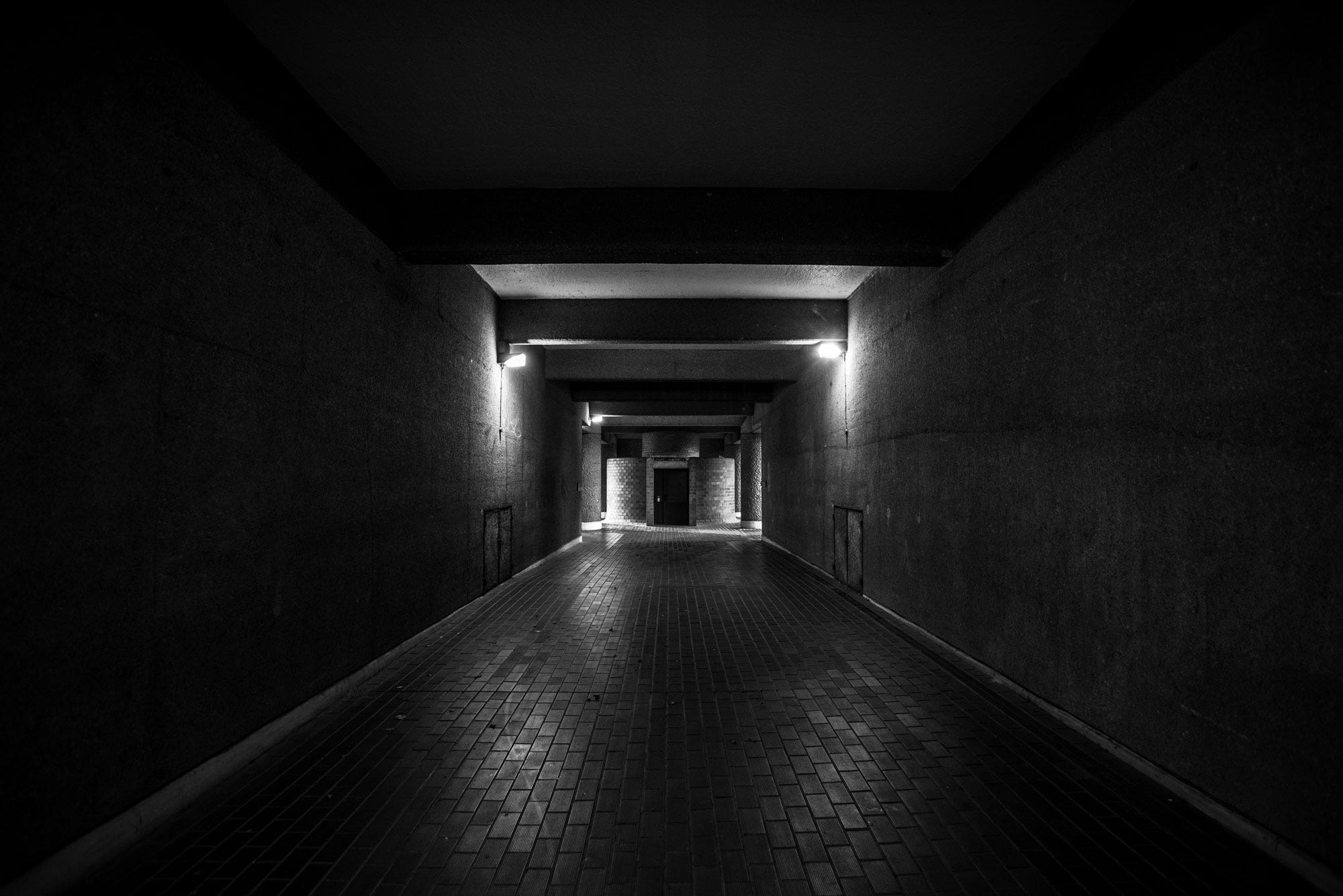
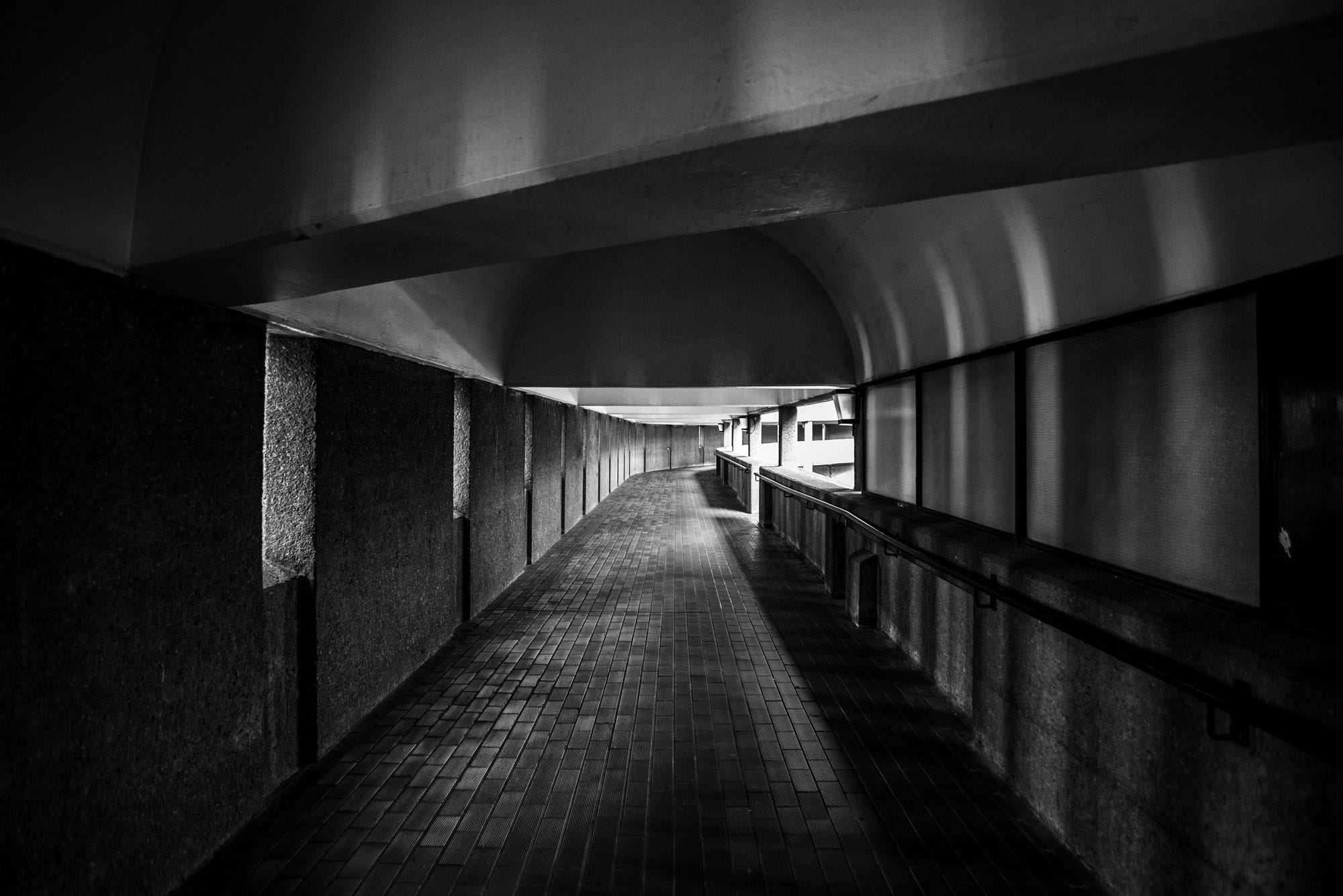
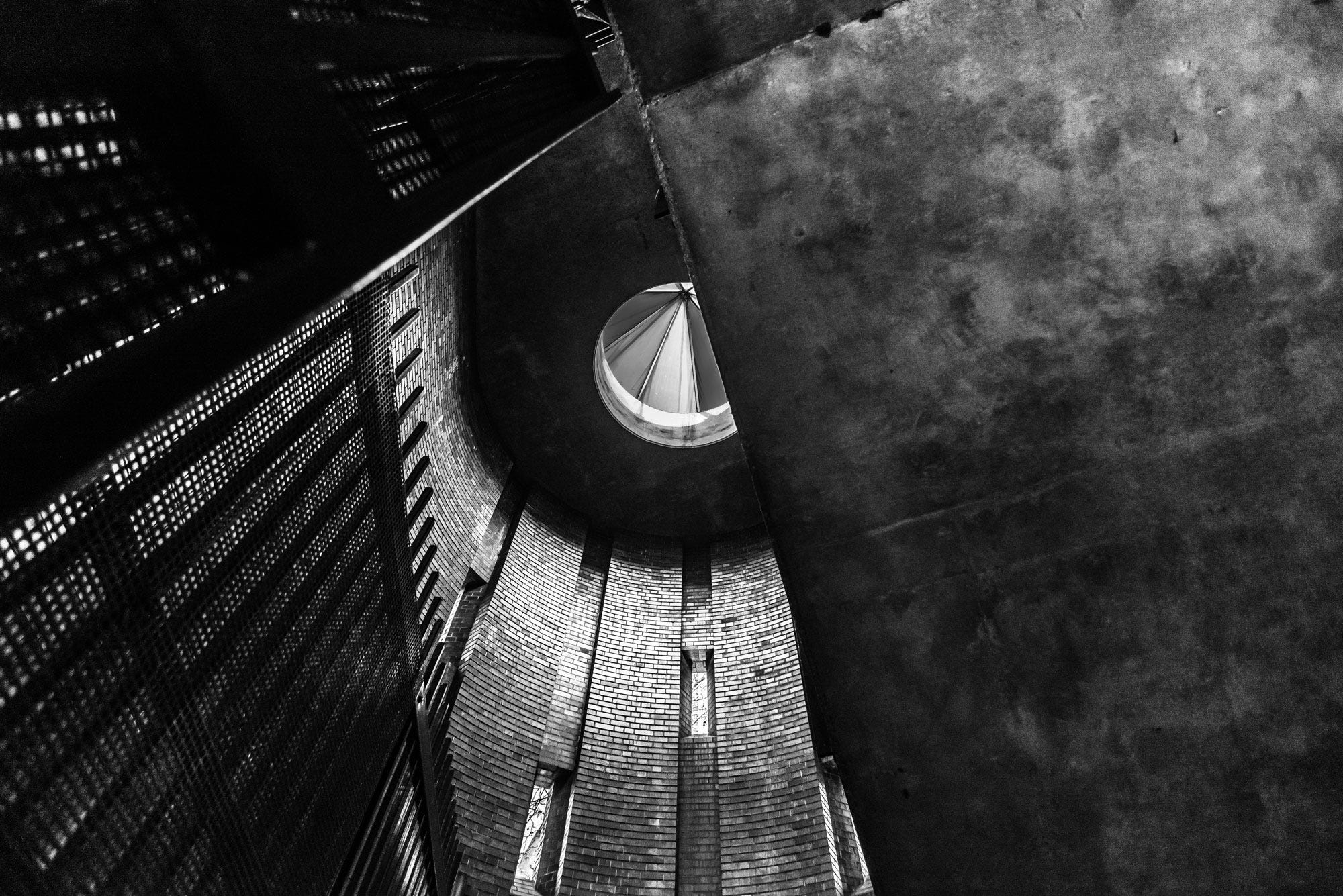
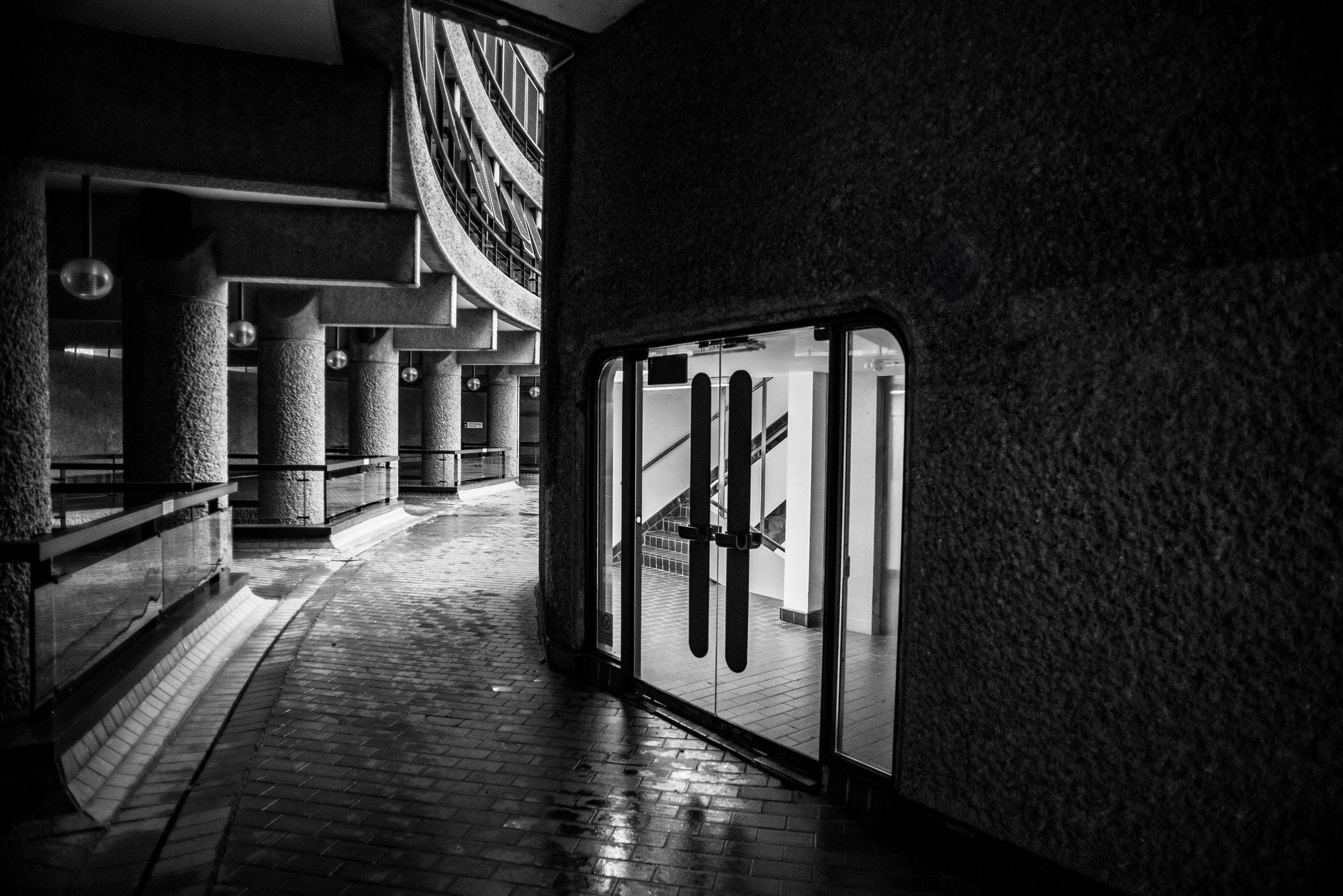
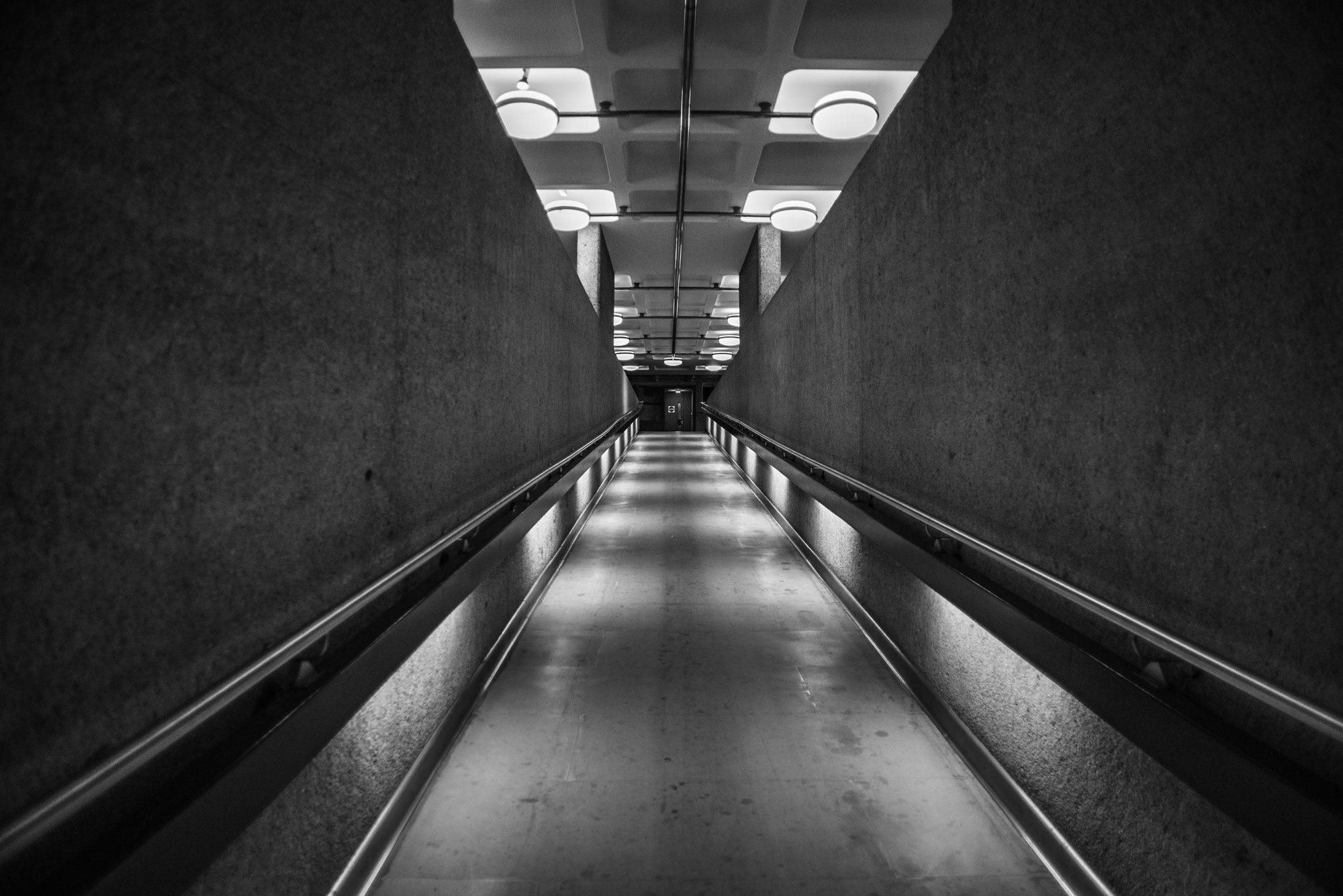
This particular combination of story and photos reminded me of "Last and First Men" (2020), an experimental art film by Jóhann Jóhannsson. It's a visually stunning movie featuring black-and-white footage of the abstract WWII monuments (or "spomeniks") from the former Yugoslavia. The film is narrated by Tilda Swinton, who reads excerpts from Olaf Stapledon's 1930 novel of the same name, exploring humanity's future over two billion years.
It conveys a stark, minimal, sterile - yet - gritty, clean - looking - but - only - superficially - so appearance that public / official places probably have the world over, little warmth or humanity, personality. A habitation for machines & / or synthetic people. Or a class of lobotomized genetically - engineered humans ( I MAY HAVE used up my hyphen allotment for March already ! ).